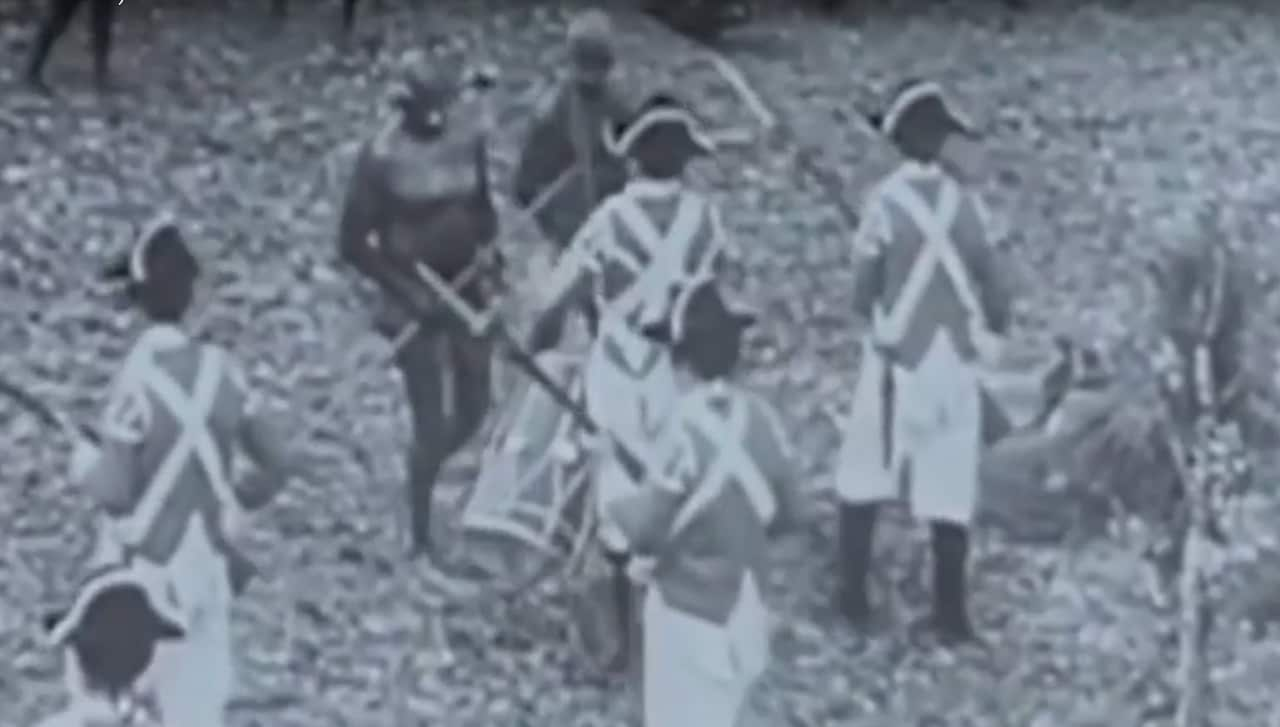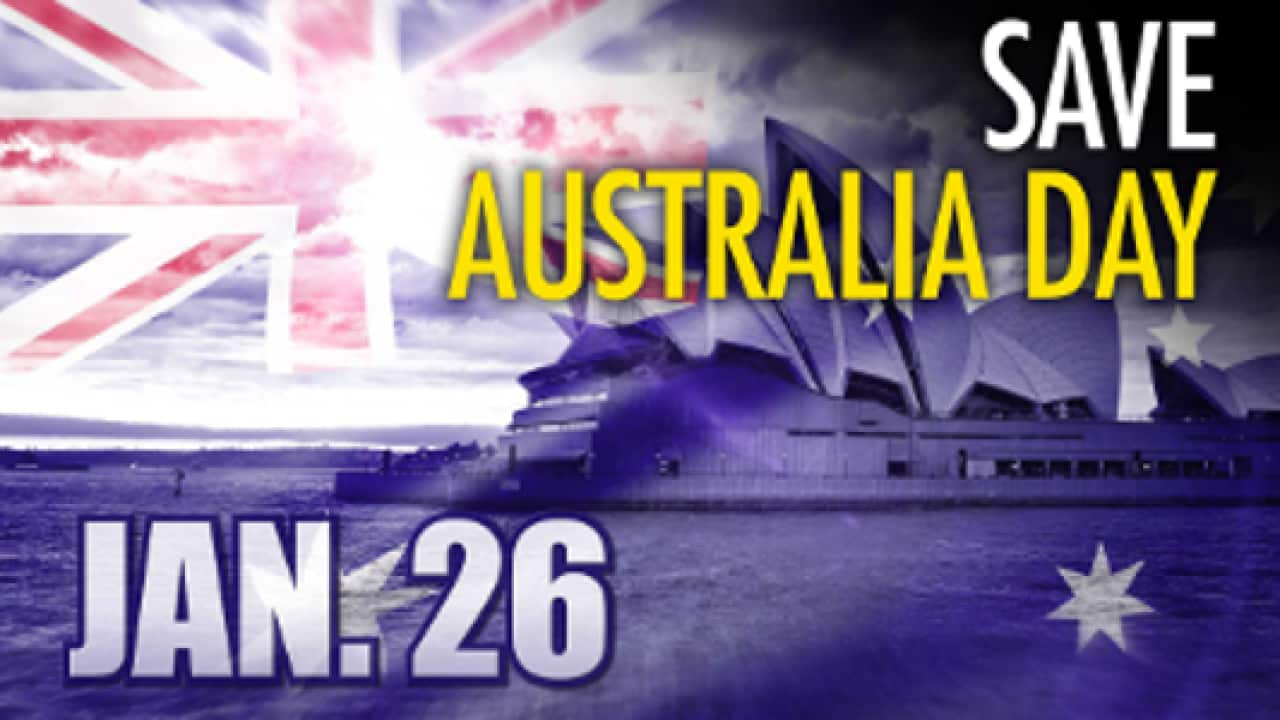#ChangeTheDate! #SaveAustraliaDay!
As the latest battle of the hashtags reaches fever pitch, it is worth remembering that the debate over Australia’s 26 January celebrations is not a new one.
While Mark Latham and his SAD (Save Australia Day) campaign would have us believe national celebrations are under threat from “” and “”, there is in fact a long history of discomfort and thoughtful debate surrounding January 26th.
The 26th of January 2018 marks 230 years since Captain Arthur Phillip decided on Sydney Cove as the site to begin the penal colony of New South Wales. It is also the 80th Anniversary of a historic civil rights protest that challenged the freshly federated Commonwealth’s claim to being a “civilised, progressive, kindly and humane nation”. 26 January, 1938 was declared a .
As Australia prepared to celebrate 150 years of European settlement, and Bill Ferguson of the Aborigines Progressive Association threw down the gauntlet. In the era of heavy handed government “protection” and under the shadow of the White Australia Policy, these outspoken Indigenous leaders called on Commonwealth citizens to examine the case “from the Aborigine’s point of view”. Their pamphlet “” stated that the 26th of January “is not a day of rejoicing for Australia's Aborigines”. They called for an end to the protection boards - “No thanks! We have had 150 years of that.” - and demanded “justice, decency and fair play”. Their case highlighted the suffering and inequality experienced by the “Original Australians” and implored Australia’s policy makers to give Aboriginal people better access to education, fair wages and the chance to play a role in determining their own future.
They called for an end to the protection boards - “No thanks! We have had 150 years of that.” - and demanded “justice, decency and fair play”. Their case highlighted the suffering and inequality experienced by the “Original Australians” and implored Australia’s policy makers to give Aboriginal people better access to education, fair wages and the chance to play a role in determining their own future.

Aborigines Progressive Association (AITATIS) Source: AIATSIS
Despite the objections of Aboriginal leaders, Sydney’s grand sesqui-centenary celebrations took place as planned. At its centre was a full scale re-enactment of Captain Phillip’s historic landing complete with “natives” retreating before the might of the British musket. As the official proceedings drew to a close, a group of around 100 Aboriginal men, women and children gathered at the Australian Hall in Elizabeth Street in Sydney to “make protest against the callous treatment of our people”. Prominent activists from across the country like William Cooper, , Margaret Tucker and even Aussie Rules star stood with Patton and Ferguson to call for “full citizen status and equality within the community”. These proud leaders were not the “whinging left” or mired in a mentality of victimhood. They stood tall and used Australia’s national celebrations as a platform to speak on behalf of a forgotten people.
Prominent activists from across the country like William Cooper, , Margaret Tucker and even Aussie Rules star stood with Patton and Ferguson to call for “full citizen status and equality within the community”. These proud leaders were not the “whinging left” or mired in a mentality of victimhood. They stood tall and used Australia’s national celebrations as a platform to speak on behalf of a forgotten people.

Organisers brought in Aboriginal men from Menindee, NSW and kept them locked up at the Police Barracks stables until the First Fleet re-enactment took place. Source: National Library of Australia
Statement from the Aborigines Progressive Association, 1938
“This festival of 150 years' so-called "progress" in Australia commemorates also 150 years of misery and degradation imposed upon the original native inhabitants by the white invaders of this country. We, representing the Aborigines, now ask you, the reader of this appeal, to pause in the midst of your sesqui-centenary rejoicings and ask yourself honestly whether your "conscience" is clear in regard to the treatment of the Australian blacks by the Australian whites during the period of 150 years' history which you celebrate?"
We, representing the Aborigines, now ask you, the reader of this appeal, to pause in the midst of your sesqui-centenary rejoicings and ask yourself honestly whether your "conscience" is clear in regard to the treatment of the Australian blacks by the Australian whites during the period of 150 years' history which you celebrate?
“You are the New Australians, but we are the Old Australians. We have in our arteries the blood of the Original Australians, who have lived in this land for many thousands of years. You came here only recently, and you took our land away from us by force. You have almost exterminated our people, but there are enough of us remaining to expose the humbug of your claim, as white Australians, to be a civilised, progressive, kindly and humane nation. By your cruelty and callousness towards the Aborigines you stand condemned in the eyes of the civilised world."
“We ask you to be proud of the Australian Aborigines, and not to be misled any longer by the superstition that we are a naturally backward and low race. This is a scientific lie, which has helped to push our people down and down into the mire."
“At worst, we are no more dirty, lazy, stupid, criminal, or immoral than yourselves. Also, your slanders against our race are a moral lie, told to throw all the blame for our troubles on to us. You, who originally conquered us by guns against our spears, now rely on superiority of numbers to support your false claims of moral and intellectual superiority."
“The cards have been stacked against us, and we now ask you to play the game like decent Australians. Remember, we do not ask for charity. We ask for justice."
In Mark Latham’s alarmist “Save Australia Day” video, Alice Springs councillor Jacinta Price makes the point that “”. She’s correct. In and of itself, a change of date does not. But a debate that challenges our colonial perspective on history and reflects on the plight of Australia’s First Peoples since colonisation, just might.
Join NITV for a week of programming which showcases the strength, courage and resilence of our people. starts Monday, 21 January on NITV (Ch. 34)












